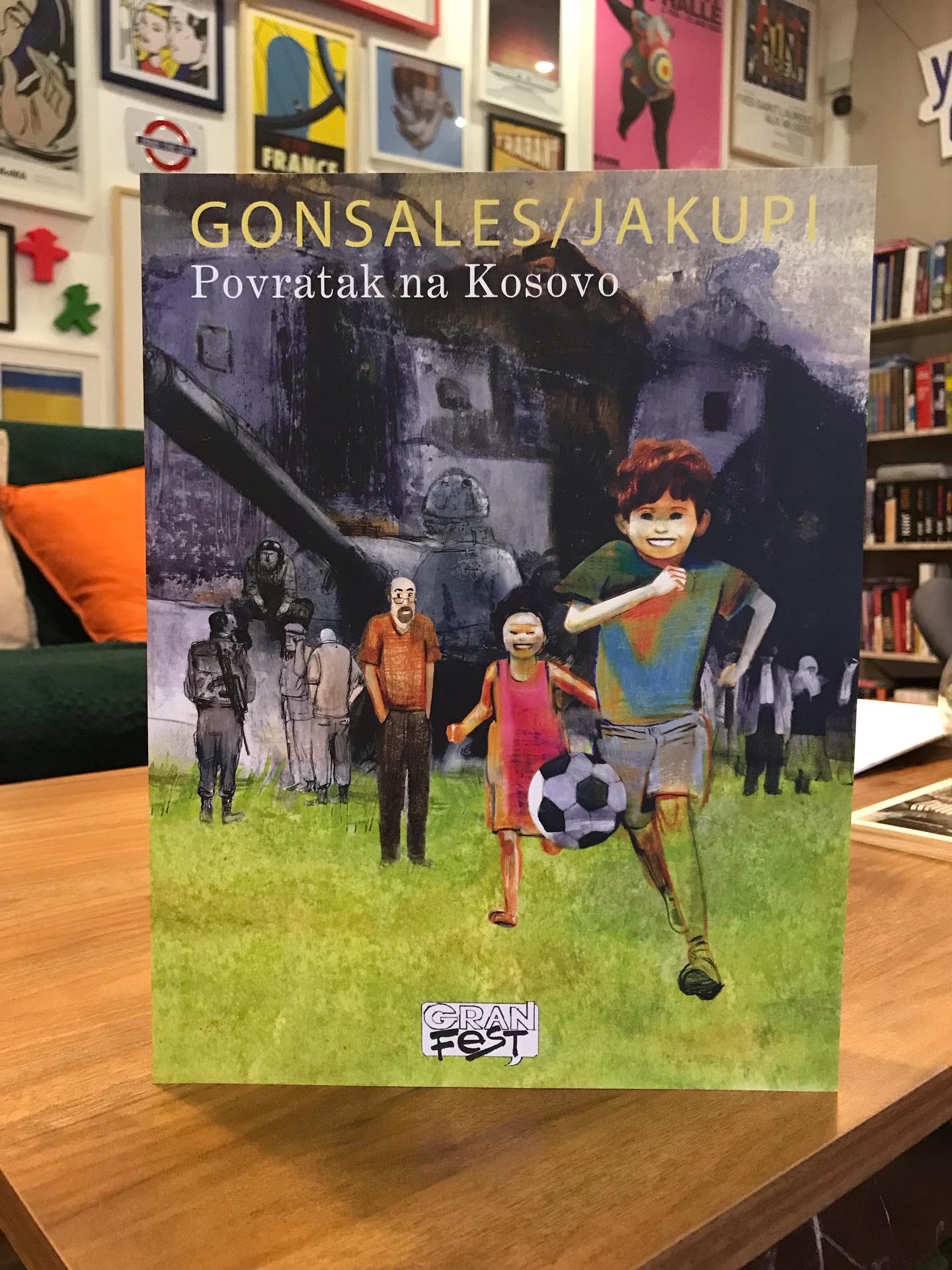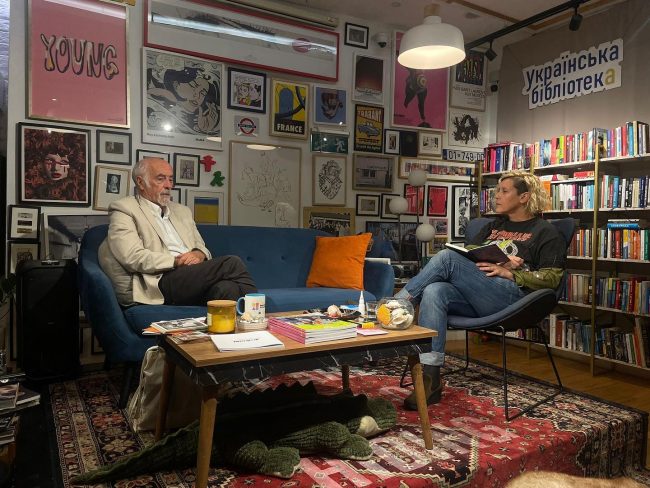
09 Oct Presentation of French-Kosovar author and jazz musician Gani Jakupi at the KROKODIL Center
On Friday, October 3rd, we had the honor of hosting the renowned French-Kosovan author and jazz musician Gani Jakupi at the KROKODIL Center. During an exceptionally interesting evening led by Maja Vuković Biserko, Gani Jakupi eloquently and dramatically shared his long-standing life outside the borders of our region, primarily in Spain and France, with critical reflections on all the negative regional dynamics. He did not shy away from discussing the contemporary Kosovo reality but focused mainly on the circumstances that led to the creation of an unusual comic-book work, “Return to Kosovo,” which we presented with a translation into our language. This unique documentary graphic novel was created by Jakupi as the screenwriter, narrator, and main character, together with Spanish comic artist Jorge Gonzales. By blending top-quality prose diary-style narration with expressive drawings, Jakupi and Gonzales created a touching and powerful graphic novel that depicts the final days of Milošević’s police state, based on policies of radical ethnic segregation that were implemented in Kosovo during the 1990s, and the subsequent liberation of the Albanian majority from the grip of the Serbian regime, which, unfortunately, also brought occasional acts of revenge by some Albanians against local Serbs.
We are proud to have had the opportunity to present this powerful work, which successfully transcends genre limitations, to the Belgrade audience. The KROKODIL Center has always been open to intensive and mutually enriching communication between Serbia and Kosovo. We will continue to support all creative people on both sides of the border who believe that the only way to break the current state of mutual suspicion, hatred, and the complex sense of superiority based on it (of which one side, likely, suffers far more — you can guess which one) is through intense, open, and fundamentally well-intentioned communication, in the hope of fostering a future that would make our region a far more livable place than the miserable state it has been in for so long.




Sorry, the comment form is closed at this time.